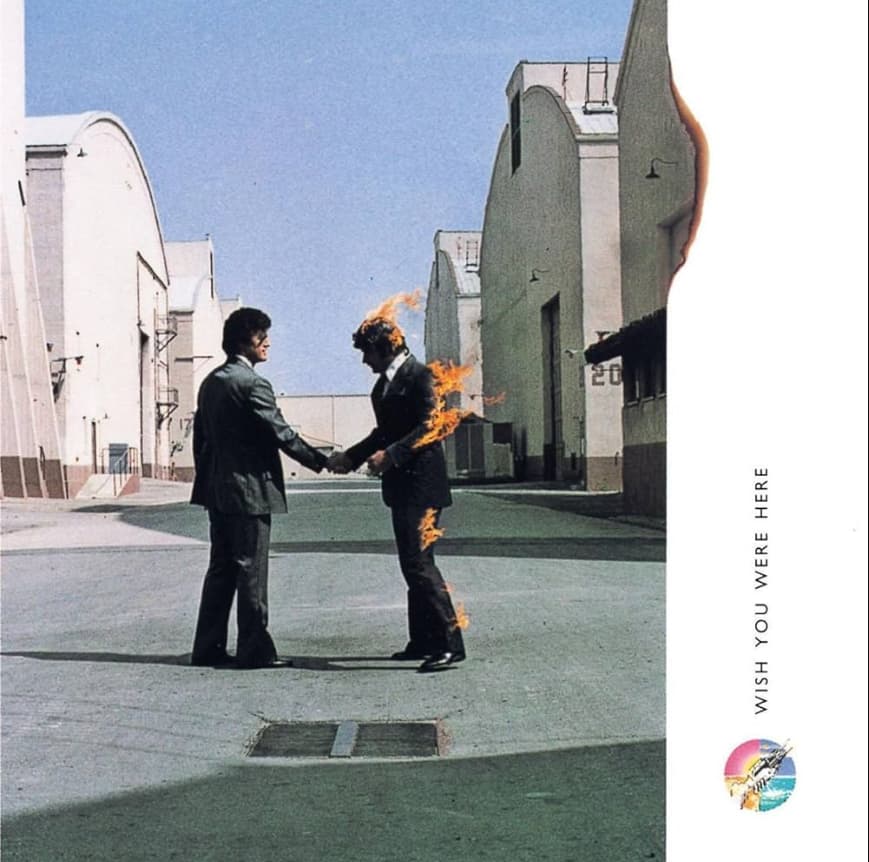
“Wish You Were Here” by Pink Floyd: A Timeless Tribute to Absence and Presence
Pink Floyd‘s iconic song, “Wish You Were Here,” serves as the poignant title track of their 1975 album. Written by the band’s guitarist/vocalist David Gilmour and bassist/vocalist Roger Waters, this song remains a cornerstone in the world of classic rock, beloved by generations and celebrated for its emotional depth and musical craftsmanship. It continues to receive extensive airplay on classic rock radio stations and has been hailed as one of the greatest rock songs of all time. Notably, it was voted the 18th best rock song by listeners of New York City’s Q104.3 and was ranked No. 302 on Rolling Stone’s “500 Greatest Songs of All Time” in 2021.
“Wish You Were Here” opens with a distinctive intro that mimics the experience of tuning a radio, creating a seamless transition from the previous track, “Have a Cigar.” This creative choice sets the stage for the song’s reflective and nostalgic tone. Gilmour recorded the initial guitar part using a twelve-string guitar processed to sound like it was being played through an AM radio. This effect gradually gives way to a richer acoustic guitar sound, evoking the sense of a guitarist playing along to a distant broadcast. As the acoustic section grows more intricate, the “radio” fades, and Gilmour’s haunting vocals emerge, accompanied by the full band. The song’s structure is marked by its memorable riff, Gilmour’s emotive solos, and scat singing, leading to an expressive vocal climax. The final notes blend with wind sound effects, transitioning into the suite “Shine On You Crazy Diamond.”
The lyrics of “Wish You Were Here” are often interpreted as a tribute to Syd Barrett, the band’s original frontman who left the group due to mental health issues. However, in the documentary “The Story of Wish You Were Here,” both Waters and Gilmour offer deeper insights into the song’s meaning. Waters describes the lyrics as a reflection on the importance of being present in one’s own life and the struggle to truly experience it. Despite Waters’ personal introspection, Gilmour acknowledges that he always thinks of Barrett when performing the song. This duality of interpretation—between personal introspection and tribute to a lost friend—adds to the song’s emotional resonance and universality.
“Wish You Were Here” is widely praised by both Waters and Gilmour. Waters has highlighted the collaborative effort behind the song, describing the joint composition as “really good” and expressing his satisfaction with the final product. Gilmour, meanwhile, has affectionately referred to it as “a very simple country song” but recognizes its profound impact and emotional weight, considering it one of Pink Floyd‘s finest works.
The song’s enduring legacy lies in its ability to touch on universal themes of absence, loss, and the longing for connection. It transcends the specific context of Barrett’s departure and speaks to a broader audience, inviting listeners to reflect on their own experiences of missing someone dear. “Wish You Were Here” is not just a song; it is a timeless piece of art that continues to resonate with audiences around the world, cementing Pink Floyd‘s place in rock history.